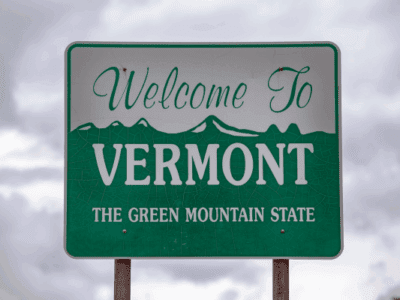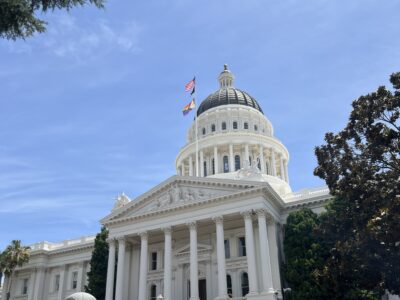The Potential Benefits of Declaring a Climate Emergency
The idea deserves serious consideration. There actually could be some very tangible benefits.
I have a confession: When I started thinking about the possibility of a climate emergency declaration, it was mostly as a counterpoint to Trump’s possible (now a done deal) declaration of an immigration emergency. As I’ve thought about it, however, it seems to me that there are enough potential benefits to make the idea worth serious consideration. A relatively restrained use of emergency powers could still have some real payoff.
In general, I’m not in favor of expanding the use of Presidential power into new territory. As Trump illustrates on a nearly daily basis, Presidential powers are dangerous in the wrong hands. But if the Supreme Court upholds Trump, that objection becomes pretty much moot.
Still, an emergency declaration isn’t a magic wand that would allow a President to enact the Green New Deal. As I wrote in a previous post, it mostly gives the President some additional authority to move funds around and to either promote or block a significant but not unlimited range of economic transactions.
But simply declaring a climate emergency could have benefits even apart from any concrete follow-up. It would be a strong signal that the U.S. recognizes the urgent need to cut carbon emissions – a signal to the international community as well as courts and agencies in the U.S. That would be a plus by itself.
Beyond that, I would favor tying emergency actions (at least at the start) to recognized issues that impact our society’s security. One is grid resilience. Renewables and storage would make a particular contribution to resilience in areas where they have the least penetration, meaning the Southeast, but also in many other states. Microgrids combined with distributed solar could also be useful in the wake of natural disasters like the hurricanes endemic to the Gulf Coast. We need to jump-start the carbon transition in those parts of the country to pave the way for more comprehensive measures. We also need to upgrade the grid elsewhere. Doing so would allow much bigger cuts in emissions from the electricity sector.
Another security-related issue involves military installations. The military has already taken steps to increase use of renewables and to harden sites against sea level rise. But a lot more could be done, particularly in the way of much greater electrical storage capacity (which might include use of electric vehicle batteries). Military funds could be redirected for these purposes, and the military could also be involved in increasing grid resilience in areas surrounding military bases and for critical infrastructure more generally. This could be especially helpful in starting the ball rolling in the Southeast, which remains the most backward area in terms of renewable energy.
A third option would be to take America out of the business of encouraging the use of coal in other countries. Emergency and national security powers give the President considerable leverage over exports and financing of foreign projects. We should not be devoting our resources or production to encouraging countries like India to build more coal plants.
It would take a lot more work to turn these ideas into actionable proposals. We’d need to know the effect of these measures, the available resources, and just what statutory provisions would support them. Closer study could also turn up additional possibilities. It would probably take a sustained effort, maybe by a small team, to actually work through the issues in-depth.
If the Supreme Court or Congress blocks Trump’s order, declaring a climate emergency seems less appealing. But who knows if that will happen? And of course, we have no way of knowing just when we might have a President who actually wants to do something about climate change. Whenever that happens, he or she should have access to a full analysis of the policy options.
As part of that effort, I’m beginning to think that the effort to fully analyze the potential for emergency climate action could be worthwhile. A well-considered emergency declaration might not be a bad way to start Day 1 of a new Presidency.
Reader Comments
2 Replies to “The Potential Benefits of Declaring a Climate Emergency”
Comments are closed.







The Army established an office, the Office of Energy Initiatives, to seek out private financing for what was first renewable energy, now resilience projects (see https://www.asaie.army.mil/Public/ES/oei/projects.html). Several OEI projects are in the southeast. In the map of the projects, ERCIP (Energy Resilience and Conservation Investment Program) is a Department of Defense funded program, https://www.acq.osd.mil/eie/IE/FEP_Energy_Resilience.html, to increase installation resilience across the services. While both energy and water projects are eligible for funding, the vast majority of ERCIP projects are energy related.
As a comment, there is nothing inherent in the term, grid resilience, that makes it unique to energy. The creation of water microgrids are also possible, even desirable when critical facilities must not lose both energy and water service for some defined length of time, e.g., emergency operations center. The water piece is important because of the biological needs that it satisfies, but also facility requirements for internal environments, e.g., removal of human waste. We should be trying to make critical facilities as self-sufficient as possible in both energy, e.g., generation and storage, and water, e.g., reuse of water (direct or indirect) to meet both potable and non-potable end uses.
Another great idea Dan, I hope it is not way too late because getting you folks to unite is still like herding cats.
In 1999 Sir John Maddox concluded in his book “What Remains to be Discovered” that “— small armies of scientists will be required to remove persisting uncertainties and to devise effective strategies for the avoidance of calamities —“ and it is now 2019 when we are experiencing calamities with out of control frequency throughout to world.
Meanwhile, Washington’s republican army of social Darwinists are winning as Trump’s latest increase in approval ratings certify.
You cats are not making the right things happen fast enough!